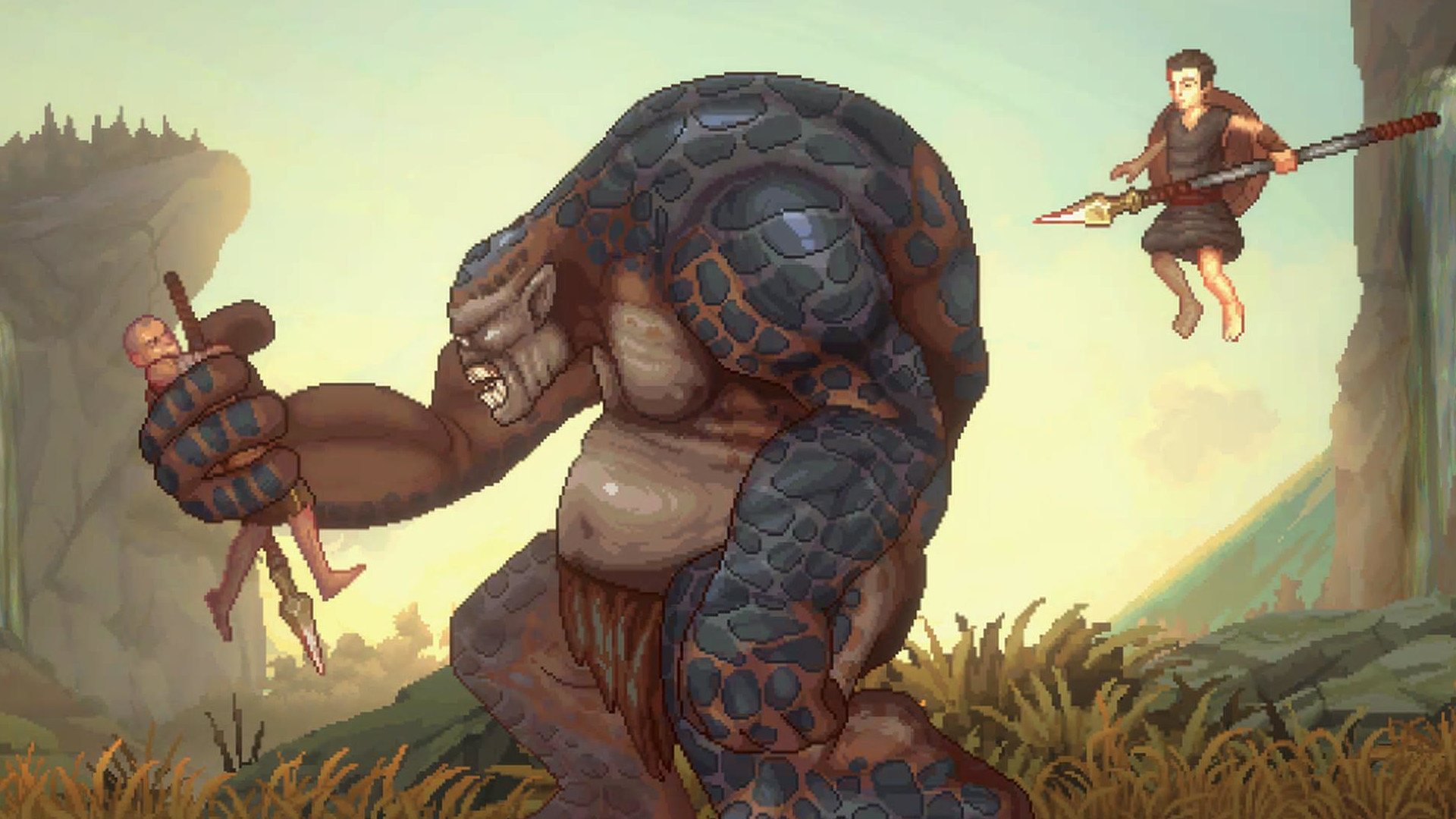11 things video games can learn from Game of Thrones
The game industry is dark and full of shooters
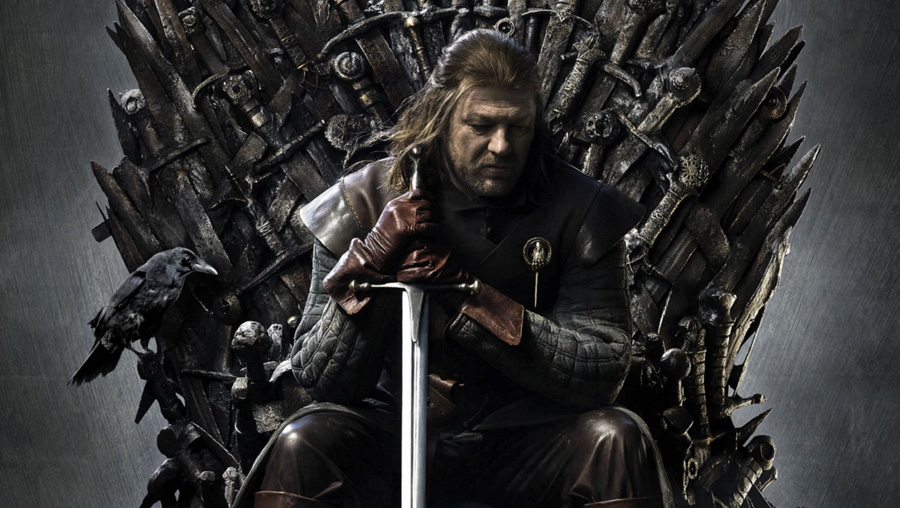
Game of Game of Thrones
The increasingly popular Game Of Thrones returns on March 31, having captured popular and critical imagination in a way that no fantasy series save for Lord Of The Rings ever has. In fact, George R. R. Martin's Game Of Thrones (and its source novels) has been one of the major forces dragging popular fantasy stories into a realm of respectability--an area that video games are still seeking.
But it's not just blood and butts that make Game Of Thrones a crossover hit--it's a combination of a refreshing narrative structure with technical skill. But its not enough to simply point at these things and admire them--instead, lets look at some of the things that Game Of Thrones does that video games can learn from. Note: This article includes light spoilers for the shows first two seasons, so read with (some) caution.
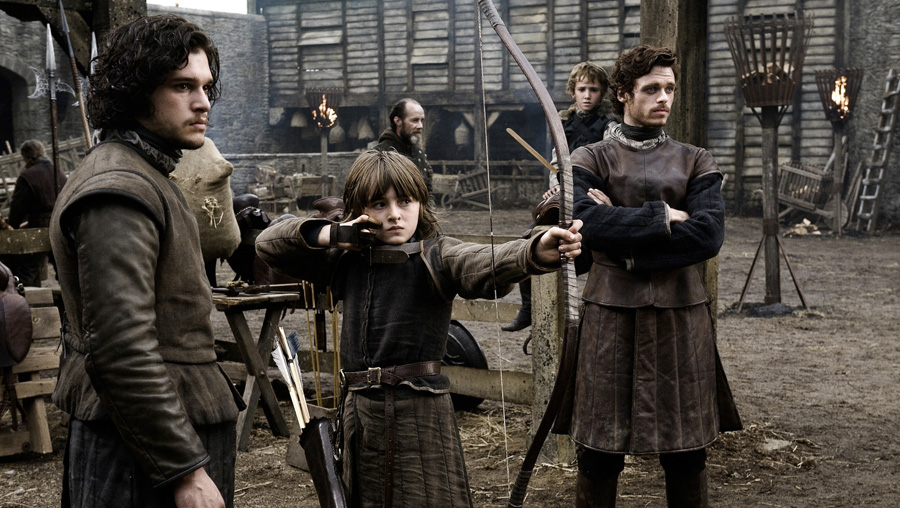
Multiple perspectives allows for better storytelling
The narrative of structure of Game Of Thrones depends on its multiple perspectives. In the novels, there are roughly 10 point-of-view characters per book, while in the show, the viewers will see even more scenes. This gives the story several immediate advantages: there are multiple main characters, letting us see and understand different parts of the world at different times. It also allows characters to die without the story ending and makes cliffhangers a breeze.
Video games tend to stick with the one hero-one story model, when many of them, especially role-playing games, might actually benefit from multiple perspective. With multiple characters, players can get the best of all worlds: more story, more setting, more difficulty, more variety. Certain games, like a few Resident Evil titles, the Game Of Thrones RPG, and the cult hit Might & Magic: Clash Of Heroes have used multiple perspectives, but we think they'd be most useful in epic RPGs like Dragon Age.
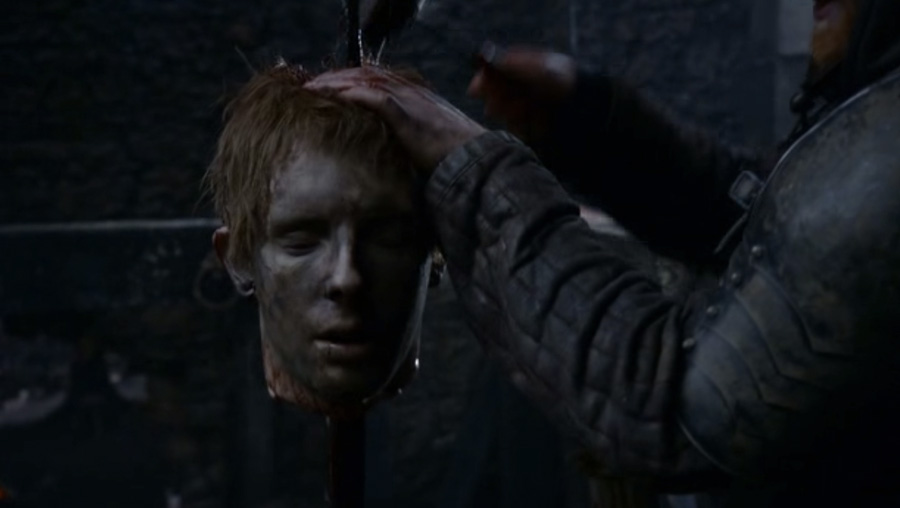
Anyone should be able to die
Got a bunch of main characters getting in each others' way? Kill a few of them off. That's what Game Of Thrones did toward the end of its first season, when one of the characters who appeared to be plot-critical was simply, brutally beheaded. It was a stunning moment, which suggested that there were no rules, that nobody was safe, and that death could be sudden and meaningless.
Video games lie about that danger all the time. You play as supremely competent soldiers, who will regenerate, respawn, or reload their way out of any danger. Want to know why XCOM was so well-received? Because death was sudden, brutal, and meaningless. And why does Final Fantasy VII have perhaps the most famous game story of all time? Because a major character is taken away, against all the rules. If you're going to depict war and violence, video games, then you have depict the consequences of war and violence. That's death--for potentially anyone, not just nameless grunts and heroes engaging in sacrifice.
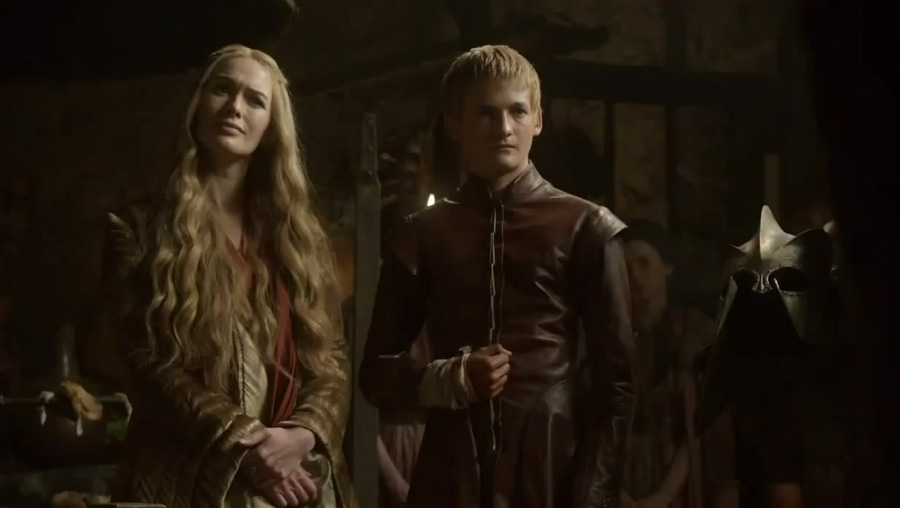
Tone down and prove your villains villainy
So here's the core problem with most video game bad guys: they have big important plots to destroy... whatever. The world. The galaxy. The country. They almost always want to blow up something big, so big in fact, that it's impossible for that to happen and the game to maintain any narrative integrity. And, since your goal is to stop that enemy, it means that success in your mission leads to the villain never accomplishing any of their goals. What kind of bad guy never does anything but posture and laugh maniacally? Video game bad guys, that's who.
Compare that to Joffrey, the royal bastard of Game Of Thrones. Joffrey's villainy exists on a national scale--the good guys and girls, all of them, want to dethrone Joff--but it's also venal and personal. He tells an insulting bard that the bard can keep either his tongue or his hands, not both. He orders all rival claimants to the throne dead, including babies. Joffrey exists to exercise villainy... and he's not even the worst character in the series. Video games spend too long on genocidal AIs and mad mages, when it turns out sociopathic brats are far more affecting.
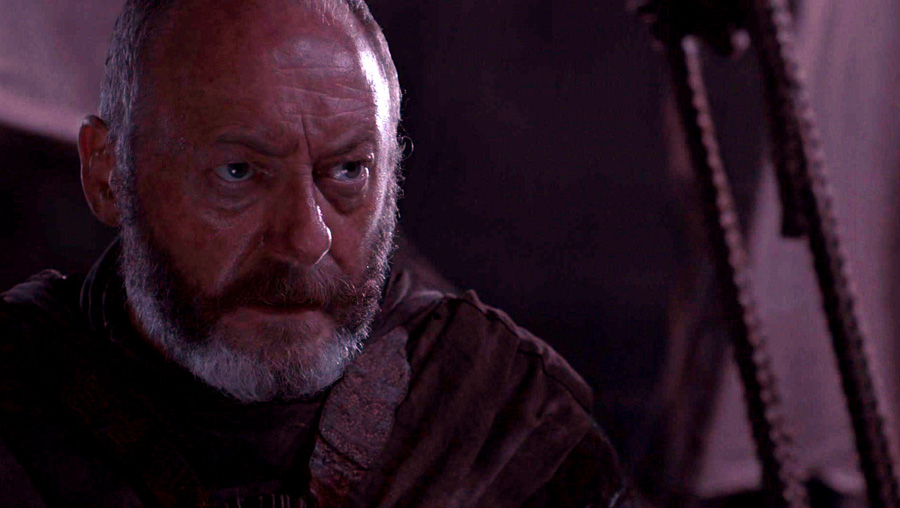
Use human-centered narratives
Speaking of those mad wizards, enough is enough. A story is difficult to treat seriously if it depends on totally inhuman forces for all of its tension. Godlike evil spaceships, magical beings fighting against literal personifications of Fate, zombies, or warmongering madmen who believe in inane forms of Social Darwinism? Those are inhuman. They're good if you want a simple conflict, and for many games, that's fine. But for deeper stories, games have to plumb human emotions and motivations.
That's why the best Game Of Thrones game, and the best strategy game of recent times, is Crusader Kings II. It creates a world of thousands of humans in medieval Europe, all of whom have different motivations and relationships with one another. Every emerging narrative comes from those relationships, and they end up looking a lot like Game Of Thrones. A king's brother decides that he would make a better ruler than his dead brother's nephew. A regent desperately arranges a princesses' marriage to ensure an alliance. These events only happen in Crusader Kings II, and only because it attempts to model the complexity of human relationships at a level that almost no other game attempts.
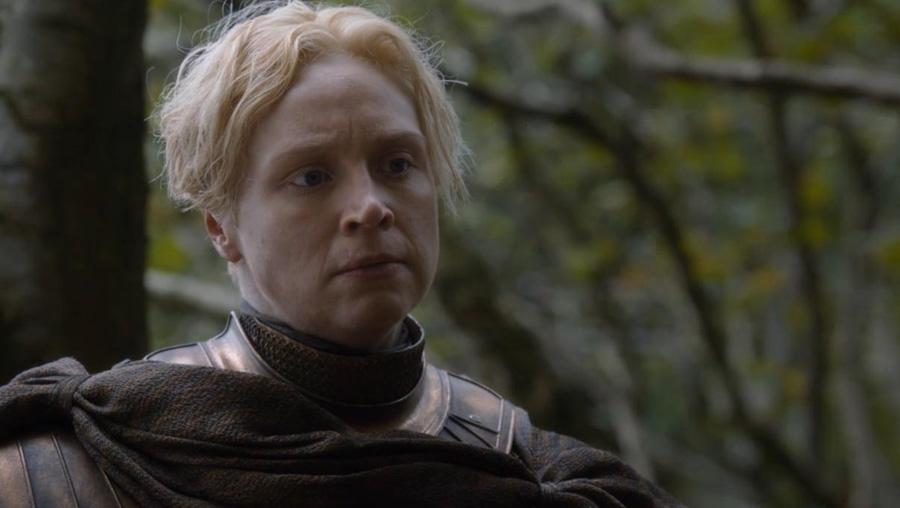
Follow through on your setting
One of the things that made Game Of Thrones stand out so much in the fantasy genre is that it felt historically plausible. This wasn't a dreamlike medieval world where the peasants became knights and farmer boys married princesses, it was instead one where class and gender roles are enforced through brutality and law. That can certainly be depressing to watch, but it also makes the exceptions that much more powerful. A woman like Brienne of Tarth, who becomes as good a fighter as any knight, is rare and special in Game Of Thrones.
Not every story needs to be about brutality and oppression, of course. But for games which want to examine tougher issues, or tell meaningful stories, they need a setting that allows that depth, instead of merely being window-dressing for having cool aliens to shoot. BioWare's Dragon Age games take a lot of their tone from George R. R. Martin's books, and it shows--its characters' struggles have more meaning because the world allows it.
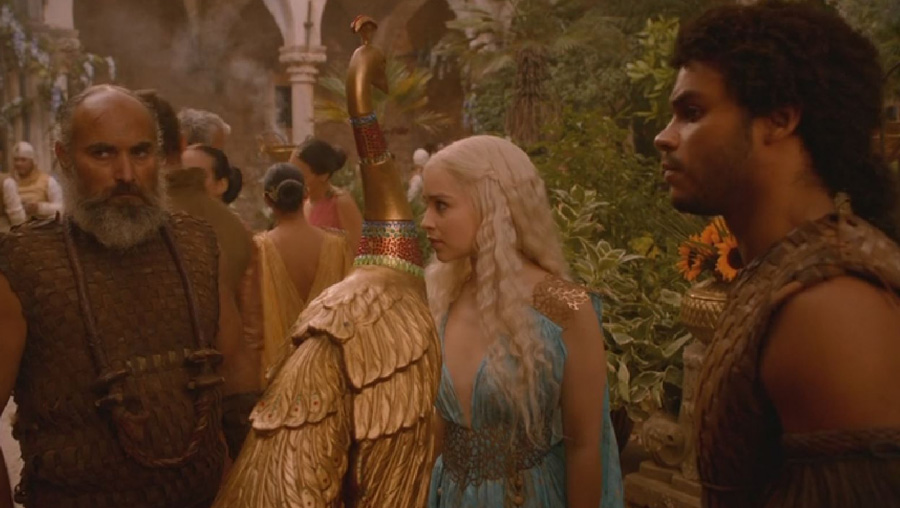
Demonstrate your budget
Game Of Thrones is one of the most expensive shows on television, and it looks the part. In fact, it may be the best-looking television series of all time. It combines extremely effective on-location shooting (like snowy Iceland to represent the North), with detailed constructed sets, and computer graphics to fill in an epic sweep when required. Beyond that, the actors on the show (with rare exceptions) always seem to be more than capable of bringing the material to life. The money invested in the show doesn't just go into making it seem technically competent--it makes it a memorable experience just to watch and listen to.
So many games, even those with the biggest budgets, aim for that technical competence. But effective style can be much more memorable. In video games, that's often left to indies like Journey or Bastion, while the blockbuster games usually take a different tack toward realism and grittiness. But as Game Of Thrones shows, it's possible to put a lot of money into something with a specific and impressive aesthetic.
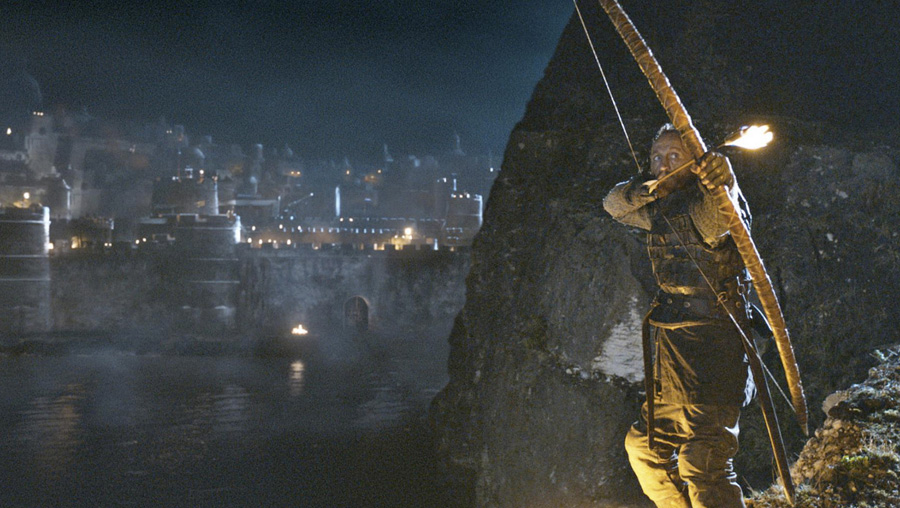
Make your big moments and your set pieces count
The most acclaimed episode of Game Of Thrones so far is Blackwater, the penultimate episode of the show's second season. In Blackwater, the capital of the kingdom is besieged, and the episode focuses entirely on that battle. This is a change in the core structure of the show's episodes--normally, there are stories in at least four different settings. The battle itself is also done extremely well, with quiet moments to build the tension and importance matched by surprisingly epic (for television) moments of warfare.
Despite being built around battle and war, video games often struggle to make their big moments stand out. The boss fight is the most common form of escalation, but it's often not enough. As Blackwater demonstrates, changing the pace and structure make the best bits stand out. A few games do it well: Fallout 3's mission to reach the radio station in the heart of the D.C. ruins adjusted its core rhythm in superb and memorable fashion. If a section of a game is supposed to be critically important to its narrative structure, it needs to stand out.
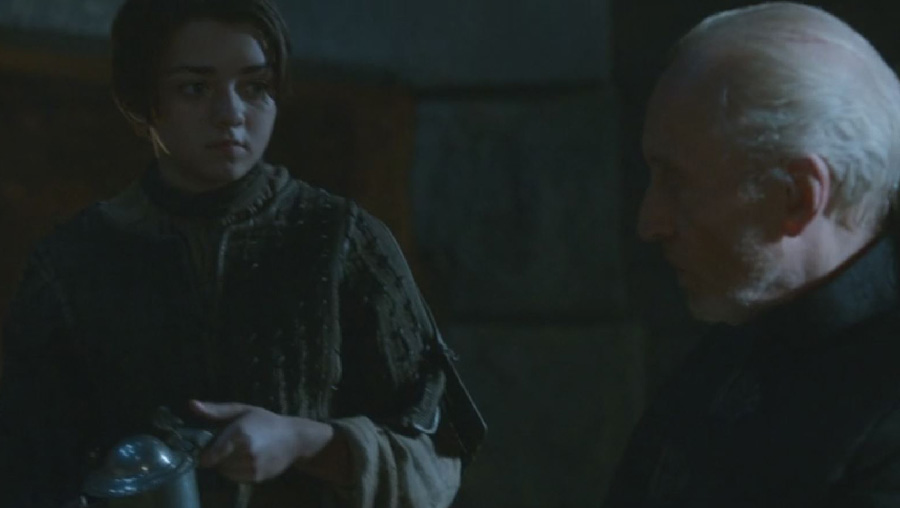
Introduce complexity well
Game Of Thrones is a complicated show. The idea that a fantasy series with hundreds of characters with increasingly weird names and dense backstories could have become a cable phenomenon seems utterly outlandish. Yet the show survived, then thrived, despite that. What made it work? Game Of Thrones has discovered that discussing seemingly dry backstory works best when it makes the audience tense. Its famous sexposition is one form of audience tension, but it's also heightened audience attention by having a character skin a deer while giving a speech, or having two characters who can try to kill each other at a moment's notice banter back and forth.
Video games have long struggled with describing their worlds. Perhaps after Game Of Thrones they'll start adding sexposition or moments of heightened intensity, but really, video games just need to have more confidence in the audience. Create a good story, and trust the audience to want to know more about that story.

Have non-terrible children...
How often have you played a game you played with a child in it where the child actually added anything worthwhile to the game? Kids in games are often terrible, with adults distorting their voices to sound like cartoons of children ordering your character to do annoying things for them. Or they're used as symbols, like the brat from Mass Effect 3 whose death came to stand for Shepard's motivation in the most obvious way possible.
The children in Game Of Thrones, on the other hand, are some of the best characters on the show. The secret? They're recognizably human. Sure, they're young and impulsive and make mistakes, but they're not treated foreign objects to be put on a pedestal. It's not terribly difficult to have comprehensible children--Dishonored got it right with Emily Kaldwin, and we fell in love with The Walking Deads Clementine--but most games don't even bother, either ignoring this aspect of human society, or making you wish they had.
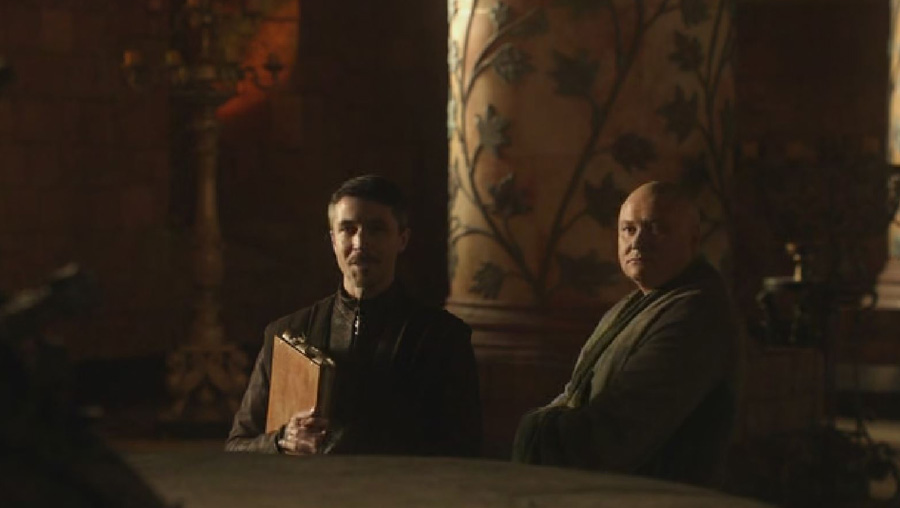
...and have non-terrible adults
Virtually every game story focuses on the adventures of young adults. That makes sense: they're the most likely group to have and succeed at quests and combat. But it doesn't mean that they're the only characters in the world. Far too often, games reduce anyone who's not an adventuresome young lad or lass to their role in the world: the admiral, the king, the fortune-teller, the innkeeper.
On Game Of Thrones, the major characters include people of all kinds of different ages, each with different motivations. Queen Cersei Lannister and Lady Catelyn Stark both wish to protect their children, though they do so in very different ways. Lords Varys and Baelish gamble with the future of the kingdom, without revealing what their final goals. These characters are as or more interesting than the young adults who'd be the main characters of a less complex story, like Robb, Jon, Dany, or Theon. Like the children, it's because they're recognizably human, not simply posts to move the story along.

Good isnt always right
Good and evil are presented as two opposite-but-equal approaches in most video games that have morality. Save the kitten that's stuck in a tree, or burgle the owners' house while they're distracted? Either way, you're probably getting roughly the same amount of experience and money. And you'll see most all of the game, good or evil, when it comes time to end.
In Game Of Thrones, if you're good, you could get your head chopped off. Forget the end of the series--you won't even see the end of the book. Nor is going Renegade a sure way to victory either--then you may end up with a crown of molten gold on your head, boiling your skull. The morality system in Game Of Thrones does not offer predictable rewards. Games don't have to either. In Dragon Age 2, for example, you can do everything to help and be nice to one of your companions, but helping actually has the effect of ruining her life. It's daring and devastating--and probably partially learned from Game Of Thrones.
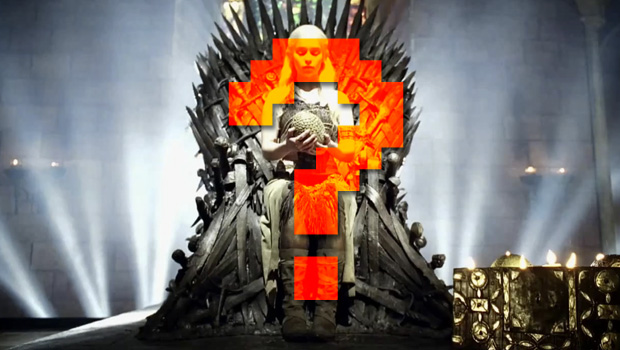
Achievements are dark and full of terrors
Well, what do you think? Are there any elements of Game of Thrones that you think more game developers should adopt? Let us know! You can also post how you want someone to make a physics-based game where you slap the hell out of Joffrey--we'd totally be alright with that too. Actually, do that, we don't care as much about the other thing.
And if you're looking for more, check out 10 things we want from a Game of Thrones game and 25 MMORPGs on the horizon.
Weekly digests, tales from the communities you love, and more
You are now subscribed
Your newsletter sign-up was successful
Want to add more newsletters?

Every Friday
GamesRadar+
Your weekly update on everything you could ever want to know about the games you already love, games we know you're going to love in the near future, and tales from the communities that surround them.

Every Thursday
GTA 6 O'clock
Our special GTA 6 newsletter, with breaking news, insider info, and rumor analysis from the award-winning GTA 6 O'clock experts.

Every Friday
Knowledge
From the creators of Edge: A weekly videogame industry newsletter with analysis from expert writers, guidance from professionals, and insight into what's on the horizon.

Every Thursday
The Setup
Hardware nerds unite, sign up to our free tech newsletter for a weekly digest of the hottest new tech, the latest gadgets on the test bench, and much more.

Every Wednesday
Switch 2 Spotlight
Sign up to our new Switch 2 newsletter, where we bring you the latest talking points on Nintendo's new console each week, bring you up to date on the news, and recommend what games to play.

Every Saturday
The Watchlist
Subscribe for a weekly digest of the movie and TV news that matters, direct to your inbox. From first-look trailers, interviews, reviews and explainers, we've got you covered.

Once a month
SFX
Get sneak previews, exclusive competitions and details of special events each month!
